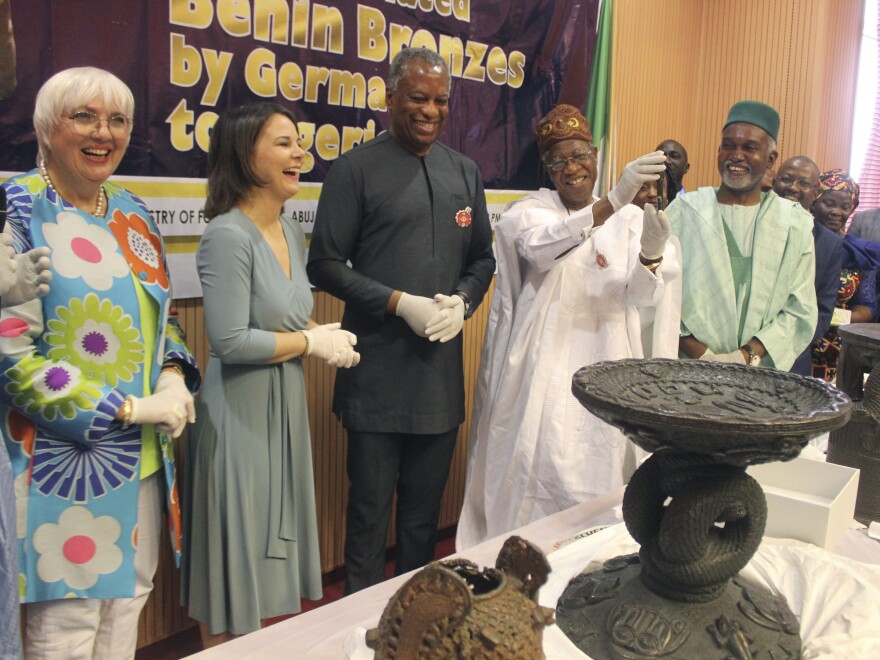Updated December 21, 2022 at 2:11 PM ET
Germany has returned 22 Benin Bronzes to Nigeria as part of a larger effort by Western nations to seek reparation of stolen artifacts from Africa.
The Benin Bronzes are sculptures and plaques looted from the ancient Kingdom of Benin — now southern Nigeria, not the modern nation of Benin — by British soldiers in 1897. Nigerians have demanded the bronzes' return for over a decade, but Western nations and museums have only begun to answer their call in recent years.
Tuesday's handover is Germany's first step in fulfilling its agreement with Nigeria earlier this year to release all 1,130 Benin Bronzes from German museums.
Germany's Foreign Minister Annalena Baerbock acknowledged that while the return of the artifacts will not heal all the wounds of the past, she said it is a crucial step in addressing Germany's "dark colonial history."
"To you here in Nigeria, this loss has been your reality for your whole life," Baerbock said at Tuesday's official handover ceremony. "Today we are here to return the Benin Bronzes to where they belong — to the people of Nigeria. We are here to right a wrong."

She added that Germany and other European countries must listen to those who were the victims of colonial cruelty and work toward making reparations.
"Twenty years ago, even 10 years ago, nobody could have anticipated these bronzes returning to Nigeria, because the obstacles to achieving repatriation were seemingly insurmountable," Nigeria's Minister of Information and Culture Alhaji Lai Mohammed said at the ceremony. "But today, with the pioneering gesture of a friendly nation, Germany, the story has changed."
For the last decade, the Benin Dialogue Group has been working to repatriate these artifacts. Germany's negotiations with Nigeria have prompted swifter dialogue with other nations, institutions, and museums, according to the information and culture ministry. The Metropolitan Museum, the Smithsonian, and the Horniman Museums and Gardens in London are among those that have agreed to return artifacts in the past several years.
"Forever, Nigeria, Africa and indeed all of humanity will remember and always cherish this period in human history when Germany stood by us," Mohammed said at the ceremony.
Copyright 2022 NPR. To see more, visit https://www.npr.org.






